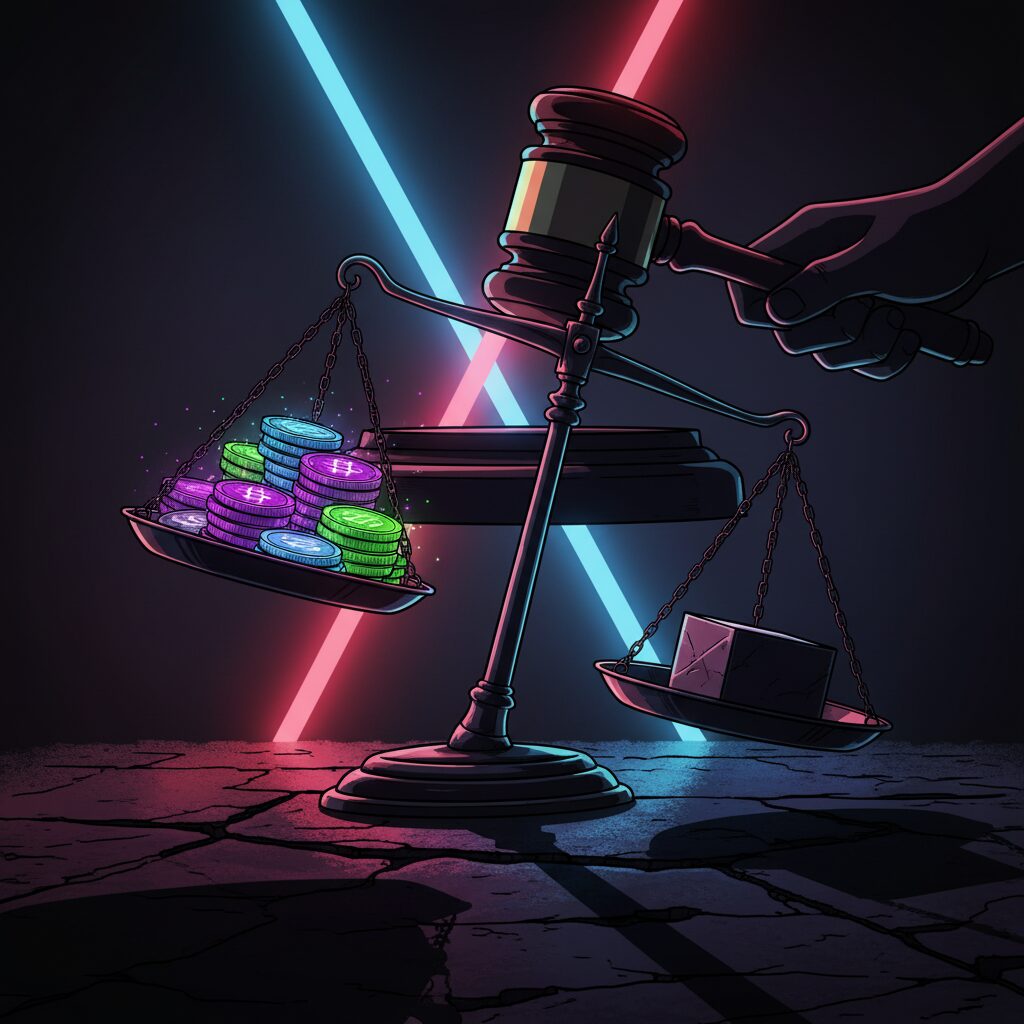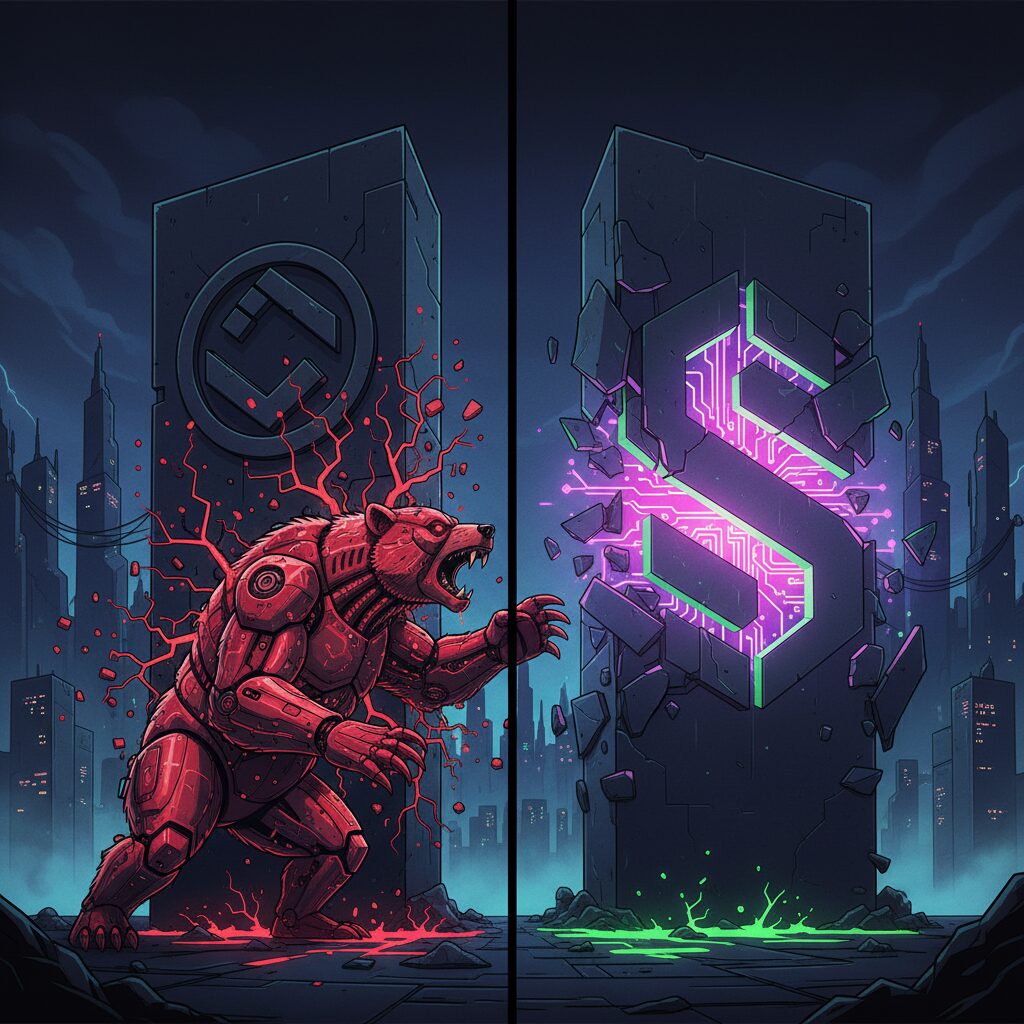Solana ETF Approval May Hinge on US Election Outcome, Analyst Suggests

The path to a spot Solana (SOL) exchange-traded fund (ETF) in the United States may be directly influenced by the results of the upcoming presidential election. According to a recent analysis, a victory for Donald Trump could create a more favorable regulatory environment, potentially leading to the approval of SOL and other crypto ETFs as early as 2025.
A Trump Presidency Could Pave the Way
Geoffrey Kendrick, head of digital assets research at Standard Chartered, predicts that a second Trump administration would likely usher in significant changes at the Securities and Exchange Commission (SEC). The key change would be the probable replacement of current chair Gary Gensler, whose tenure has been marked by a cautious and often restrictive approach to the crypto industry.
Kendrick suggests that under new leadership, the SEC might adopt a more permissive stance on digital assets. This shift could clear the way for the approval of spot ETFs for cryptocurrencies beyond Bitcoin and Ethereum, with Solana and XRP being prominent candidates. He anticipates that if this political shift occurs, approvals could be secured sometime in 2025.
Regulatory Landscape and Precedent
The recent approvals of spot Bitcoin and Ethereum ETFs have already set a significant precedent, establishing a framework for how similar products could be brought to market. These approvals have demonstrated massive investor demand for regulated crypto investment vehicles.
Further evidence of a shifting political climate comes from the recent bipartisan support for the Financial Innovation and Technology for the 21st Century (FIT21) Act. The bill, which aims to create a clearer regulatory framework for digital assets, passed the House with backing from members of both parties. This growing cross-party consensus indicates that a more structured and potentially less adversarial approach to crypto regulation is gaining traction in Washington, a trend that could accelerate depending on the election’s outcome.
Disclaimer: The information provided in this article is for informational purposes only and does not constitute financial advice, investment advice, or any other sort of advice. You should not treat any of the website’s content as such. Always conduct your own research and consult with a professional financial advisor before making any investment decisions.
While the internet connected the world and digitized information, it left a fundamental challenge unresolved: trust. How can we verify transactions and data in a digital world without relying on a central authority? Blockchain technology emerged as a powerful answer to this question, evolving far beyond its origins in digital currency.
What is Blockchain Technology?
At its core, a blockchain is a distributed, immutable ledger. Think of it as a digital record book shared across a vast network of computers. Instead of one person or entity controlling the book, everyone has a copy. Information is grouped into “blocks,” which are cryptographically linked together in a chronological “chain.”
This structure fundamentally changes how we record information. Traditional systems rely on intermediaries—like banks or governments—to maintain records. This creates a single point of failure and requires trusting the record-keeper. Blockchain removes this need. Once a block is added to the chain, it cannot be altered without changing all subsequent blocks, an almost impossible task. This creates a transparent and tamper-proof record of every transaction.
Bitcoin’s Pioneering Role
The first and most famous application of blockchain was Bitcoin. In a paper published on October 31, 2008, the pseudonymous Satoshi Nakamoto outlined a peer-to-peer electronic cash system. For the first time, value could be sent directly between two parties without a financial institution. The network ingeniously solved the “double-spending” problem—where a user might try to spend the same digital coin twice—by having the network validate and record only the first legitimate transaction. This innovation laid the groundwork for the entire field of Decentralized Finance (DeFi).
Real-World Applications of Blockchain
While Bitcoin introduced blockchain to the world, its utility now extends into numerous sectors, solving critical issues of transparency, efficiency, and security.
Enhancing Transparency in Supply Chains
A product’s journey from creation to consumer is often complex and opaque. Consider a chocolate bar: its path involves farmers, processing plants, manufacturers, and distributors. At each step, trust is assumed rather than verified. Blockchain provides a shared ledger where every participant can record their activity. From the farmer harvesting the cocoa beans to the customer making a purchase, each event is a time-stamped, unalterable entry. This makes it simple to trace a product’s origin, verify its authenticity, and ensure ethical sourcing.
Improving Charitable Donations
Non-profit organizations often struggle with operational transparency and resource management, which can erode donor trust. Blockchain technology offers a clear solution. By recording donations on a distributed ledger, every transaction from donor to final destination can be tracked. This eliminates intermediaries and reduces the risk of funds being misappropriated. Furthermore, concepts like Decentralized Autonomous Organizations (DAOs) allow donors and beneficiaries to participate directly in governance, using coded rules and consensus to ensure fairness and accountability.
Securing Healthcare Data
The healthcare industry faces significant challenges with data management, including bureaucratic hurdles and the risk of critical errors when transferring patient information between systems. A fragmented data landscape can compromise patient care. By using blockchain, a secure and unified record of a patient’s medical history can be created. This record would be accessible to authorized healthcare providers and pharmaceutical companies, ensuring that everyone involved has accurate, up-to-date information while giving patients more control over their own data.
Securing Sensitive Medical Records
Hospital databases are a high-value target for hackers, containing sensitive information like identity numbers and insurance details. Malicious actors exploit this data to file fraudulent insurance claims or illegally obtain medical benefits. Blockchain technology offers a powerful solution by fundamentally changing how this information is stored and accessed. By moving medical records to an encrypted, decentralized ledger, hospitals can make the data far less vulnerable to attack. While a public address remains visible for transactions, access to the complete records is controlled by private keys held exclusively by the patient and their doctor.
Streamlining Global Payments
Cross-border payments have historically been a slow and complicated process, often requiring extensive documentation and multiple intermediaries. Blockchain technology cuts through this complexity by enabling direct, peer-to-peer transactions. A simple wallet address is all that’s needed to send and receive funds globally, eliminating the need for cumbersome paperwork and traditional banking hurdles, making international commerce faster and more efficient.
Powering the Internet of Things
The Internet of Things (IoT) describes the vast network of connected devices that gather and share data without human intervention. Blockchain and IoT are a natural fit. While IoT devices provide the data, blockchain offers a secure and unchangeable ledger to record it. This combination creates highly reliable and transparent systems where information integrity is guaranteed. It also enables machines to securely trade resources or interact autonomously, prompting many companies to build next-generation IoT networks on a foundation of blockchain for enhanced trust and efficiency.
A Foundation for Digital Trust
Blockchain technology is transforming how industries manage security, transparency, and trust. By eliminating the need for intermediaries and creating tamper-proof records, it delivers reliability in sectors from healthcare and finance to supply chain management. Its decentralized architecture makes processes more secure and transparent, while features like smart contracts provide new levels of accountability. As it continues to mature, blockchain is solidifying its role as a cornerstone technology for the modern digital world, fostering innovation built on efficiency and trust.








